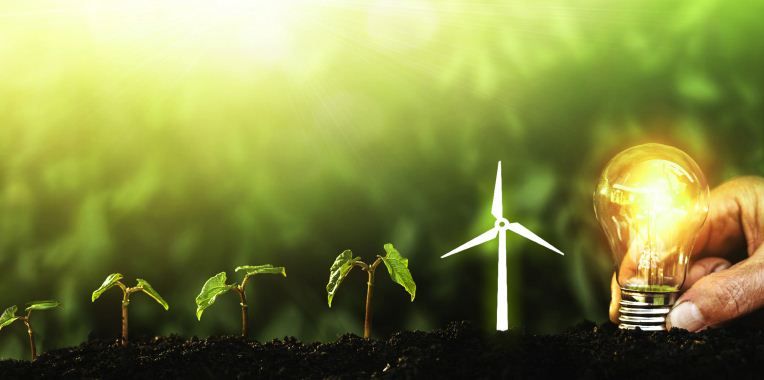Azerbaijan, endowed with abundant oil and gas reserves, has primarily developed its economy within this sector. These energy resources have facilitated the expansion of the country’s traditional energy trade. However, the Republic is now implementing policies aimed at securing its energy future through renewable resources, aligning with the evolving global landscape.
Currently, the State Oil Company of Azerbaijan (SOCAR), the nation’s principal oil enterprise, has introduced a range of initiatives designed to address the pressing challenges of climate change. Despite being an oil company, SOCAR is actively engaged in renewable energy projects through its subsidiary, SOCAR Green, which focuses on sustainable energy solutions.
A significant concern for both Azerbaijan and the international community is the upcoming UN Climate Change Conference, COP29. During this event, key stakeholders in climate policy will convene in Baku to discuss critical issues impacting humanity.
In a recent announcement, the COP29 Operating Company disclosed that the energy supply for the Baku Stadium, the conference venue, will be sourced from hydrated vegetable oil (HVO). This initiative underscores the commitment of the COP29 Azerbaijan Operating Company to implement sustainable energy solutions at the event, minimizing environmental impacts and promoting sustainability.
The organization has structured the COP29 conference around a sustainability policy that encompasses seven core commitments. Chief among these is the goal of achieving carbon neutrality by reducing greenhouse gas (GHG) emissions through the adoption of renewable energy, enhancing energy efficiency, and balancing unavoidable emissions. Another significant commitment focuses on promoting sustainable practices, including the reduction of single-use plastics, the provision of sustainable transportation options, and the availability of environmentally friendly retail products.
A pivotal aspect of these initiatives is the use of HVO as a sustainable alternative to fossil fuels for powering much of the conference venue. This approach aims to substantially reduce GHG emissions associated with energy consumption at the event.
HVO is a low-carbon fuel source, with emissions from its combustion offset by the carbon absorbed during the growth of the plants from which it is derived. Consequently, HVO presents a more sustainable alternative to traditional fossil fuels. Furthermore, its use significantly diminishes harmful emissions, such as particulate matter, nitrogen oxides, and sulfur oxides, thereby enhancing air quality in and around the event spaces. Alongside HVO, the venue's energy needs will be supplemented by other renewable sources throughout the conference.
It is important to note that this innovative initiative will be executed with the collaboration of SOCAR Green, the COP29 Energy Transition Partner. The company is instrumental in providing the necessary volumes of HVO to power the event, reflecting Azerbaijan’s ambitious vision for a sustainable and low-carbon energy future.
"COP29 Azerbaijan Co. is confident that this approach will serve as a benchmark for future international events and will further solidify the conference's commitment to sustainability and carbon neutrality," stated a company representative.
Through the efforts of SOCAR and its subsidiary SOCAR Green, the country is not only addressing the urgent challenges of climate change but also setting a benchmark for sustainability in international events. By utilizing innovative solutions like hydrated vegetable oil (HVO) for energy supply, Azerbaijan aims to significantly reduce greenhouse gas emissions and enhance air quality. This approach underscores the nation’s dedication to achieving carbon neutrality and promoting environmentally friendly practices, positioning Azerbaijan as a proactive player in the global effort to combat climate change.
SOCAR's initiatives extend beyond current projects. The company is set to engage in a series of efforts addressing climate challenges in the Garabagh and Eastern Zangazur regions, specifically in areas recently liberated from occupation that have been designated as "green zones."
According to SOCAR's 2023 Sustainable Development report, the company is committed to developing Garabagh and Eastern Zangazur as carbon-neutral economic regions. This commitment will be realized through several key measures:
1. Emissions reduction: Enhancing energy efficiency and implementing carbon capture technologies (CCU/CCUS).
2. Electric vehicle Infrastructure: Establishing regional infrastructure to support electric vehicles.
3. Gas substitution: Transitioning from natural gas to renewable energy sources, including hydrogen and other green solutions.
4. Green fuel production: Producing biogas and biodiesel to replace traditional hydrocarbon fuels.
It is important to highlight that SOCAR is actively involved in green energy projects across the republic. The company is making significant strides in the transition from conventional energy to cleaner alternatives. Its subsidiary, SOCAR Green, is dedicated to advancing initiatives in the field of green energy. Established to facilitate the implementation of decarbonization and low-carbon projects, SOCAR Green aims to make meaningful contributions both within Azerbaijan and internationally.
The primary objectives of SOCAR Green include effective management of strategic renewable energy projects, fostering collaboration with international partners, and supporting decarbonization efforts in oil and gas operations.
The company's multifaceted approach—including emissions reduction, the establishment of electric vehicle infrastructure, gas substitution, and the production of green fuels—highlights its dedication to creating a cleaner energy future. Through its subsidiary, SOCAR Green, the company is strategically positioning itself to lead the way in decarbonization efforts, both domestically and internationally. As SOCAR continues to foster collaboration with global partners, it is paving the path for a sustainable energy landscape that aligns with the global imperative to combat climate change.
---
Nazrin Abdul is AzerNews’ staff journalist, follow her on Twitter: Nazrin
Follow us on Twitter @AzerNewsAz

